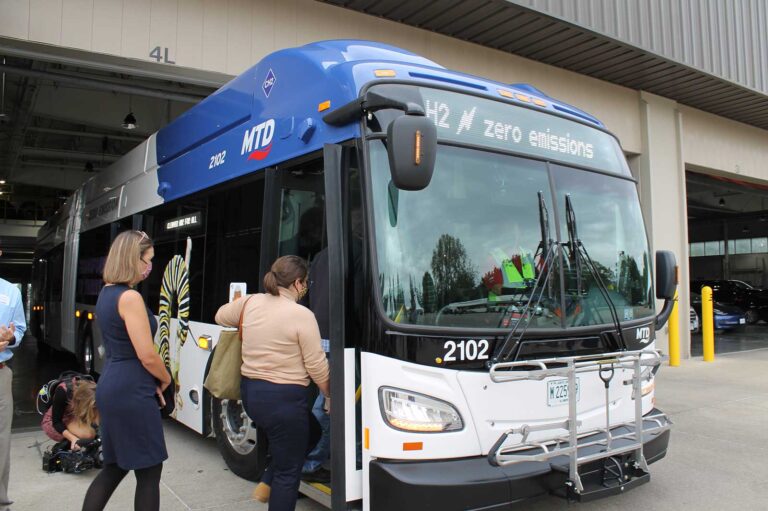URBANA – The U.S. Department of Justice combed through the Champaign-Urbana Mass Transit District website – and found a few things that needed to change to better serve low-vision riders.
One rider’s Americans With Disabilities Act complaint about the website sparked the DOJ’s interest. Although the department couldn’t replicate her claim, they did find other barriers in the website for those with vision or mobility disabilities.
CU-MTD Chief of Staff Amy Snyder says the transit district had already checked the website for such obstacles. She says after hearing about the complaint, the MTD worked with testers from the Perkins School for the Blind in Massachusetts to make more changes.
“You know, there are AI testers that can test on accessibility. I would challenge organizations to try to find native users of this assistive technology,” Snyder says.
Snyder says the district changed the color contrast and the flow of text into visual aids and screen readers on the CU-MTD website, to make it easier to use.
These are common website problems, according to Avi Laird. Laird specializes in vision disabilities at the Urbana-based disability service center PACE. She says that the best websites allow users to change font sizes and font colors to accommodate different kinds of visual disabilities. Laird recommends the World Wide Web Consortium’s website for those looking to make their own sites more low-vision friendly.
Bus stop upgrades
Two bus stops are getting upgrades as well, as part of the settlement.
For many riders, a grassy patch with an MTD sign is just another bus stop. For riders in wheelchairs like RaeAnne Lindsay, the grassy patch is a barrier.
“They’re gonna have to get off the sidewalk somehow, try to get on the ramp. If it’s muddy, they’ll get stuck. Then what, you know?” Lindsay says.
Or, it might be raining. Without a bus shelter, the rider’s electric wheelchair might get wet enough to malfunction.
Lindsay is an independent living advocate at PACE. She says bus stop accessibility is one of the top priorities among PACE customers. She and Laird estimate that the majority of their customers rely on MTD for transportation.
The transit authority needs permission from Champaign and Urbana to expand the stops. Tentatively, the MTD expects to upgrade one stop in front of the PACE office in Urbana and one stop next to Eden Supportive Living in Champaign.
At minimum, the district will add concrete pads, so those in wheelchairs have a safe route from the sidewalk to the bus. The next levels of upgrades include a bus bench, a bus shelter and digital signage, in that order.
In general, bus stops become eligible for upgrades when the number of riders passes certain thresholds. Snyder says that the PACE and Eden stops haven’t met those marks; CU-MTD will prioritize them under the settlement because district staff know people with disabilities use those stops.
All told, the MTD will spend $100,000 on the bus upgrades and other accessibility programming, per the terms of the settlement.
Lindsay says that the transit district is very proactive about accessibility in general. For example, the CU-MTD was one of the first in the country to switch to low-floor buses, which eliminate stairs at the entrance to the bus.
“There is a lot of room for improvement — that’s everywhere, also,” Lindsay says.
The specific rider who prompted the Department of Justice investigation has since passed away, according to Snyder.
This article was updated on January 4, 2021 with the correct accessibility technology the CU-MTD implemented in the 1990s.

